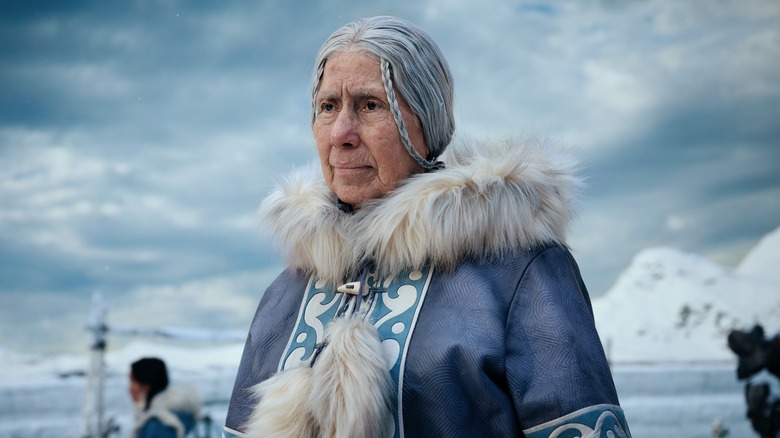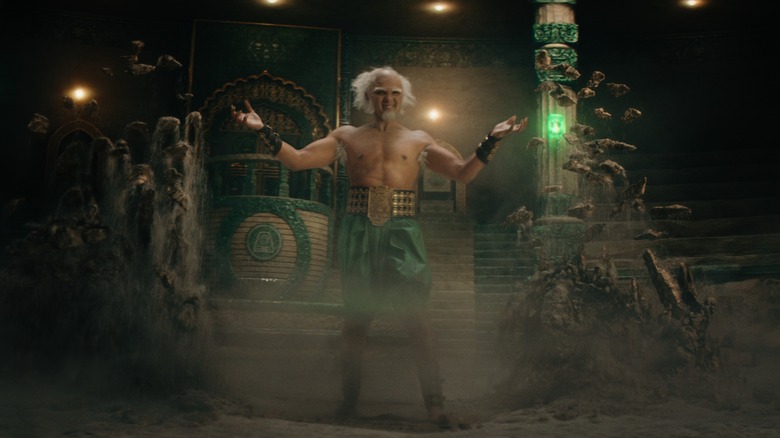Netflix's Avatar: The Last Airbender Ruins Gran Gran - Here's Why
In any adaptation, changes must be made. That's doubly true when jumping from animation to live action. Netflix's live-action "Avatar: The Last Airbender" series makes a lot of changes to the source material, some of which are quite interesting. Azula gets a lot more backstory and development, the past Avatars are fleshed out in greater detail, and the adaptation works in some fun material from the "Avatar" books and comics. Unfortunately, though, not every change is for the better, and Gran Gran gets the short end of the stick.
Casey Camp-Horinek does a great job bringing Katara (Kiawentiio) and Sokka's (Ian Ousley) grandmother to life, but the way the character is written here doesn't do her any favors. In the cartoon, Gran Gran is strict but caring. She welcomes Aang into her village when Sokka and Katara bring him home, and she encourages her grandkids to embrace their destiny by guiding Aang on his journey north.
In the new show, Gran Gran comes off far colder. She recites the intro monologue from the original show as a way of telling Aang (Gordon Cormier) that his people are all dead — a creative decision that feels both awkward and harsh. There's no consideration for Aang's emotions in this moment, as Gran Gran seems more concerned with giving fans a "Hey, it's that thing" moment. And while she does leave Katara a waterbending scroll when she departs, Netflix does away with Gran Gran's big sendoff speech — an early emotional fulcrum in the cartoon.
Gran Gran isn't the only Avatar character to get meaner on Netflix
Gran Gran's insensitivity toward Aang and lack of scenes with her grandchildren make her a much meaner and less likable character. And that's without going into her hiding her waterbending scroll from Katara for most of her life — a decision understandably based in fear, but which still feels incongruous with her original characterization. Again, changes are inevitable and necessary when adapting anything, but Netflix's live-action "Avatar" makes too many beloved characters unnecessarily cruel.
We see this again with King Bumi (Utkarsh Ambudkar), who's downright derisive of Aang despite their past friendship. In the cartoon, he's a firm believer in neutral jing, the idea that you shouldn't force a fight until the time is right. In the Netflix version, he rants to Aang about war and challenges him to a duel to the death.
Avatars Kyoshi (Yvonne Chapman) and Kuruk (Meegwun Fairbrother) offer Aang very little sympathy, despite their own trials and the fact that his disappearance wasn't his fault. Even Sokka and Katara's father Hakoda (Joel Montgrand) is shown to be kind of mean. For as much as the Netflix adaptation seems interested in toning down characters' more problematic qualities, it's curiously willing to make those same characters vaguely unfeeling.

